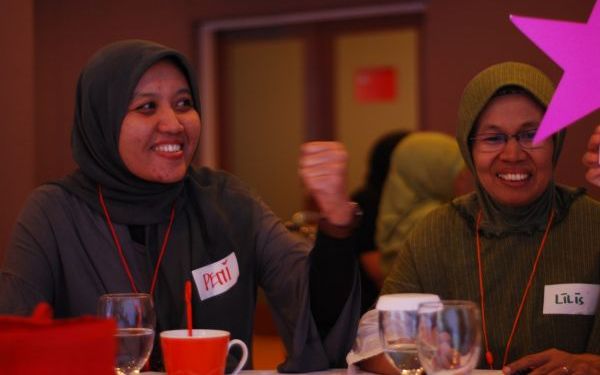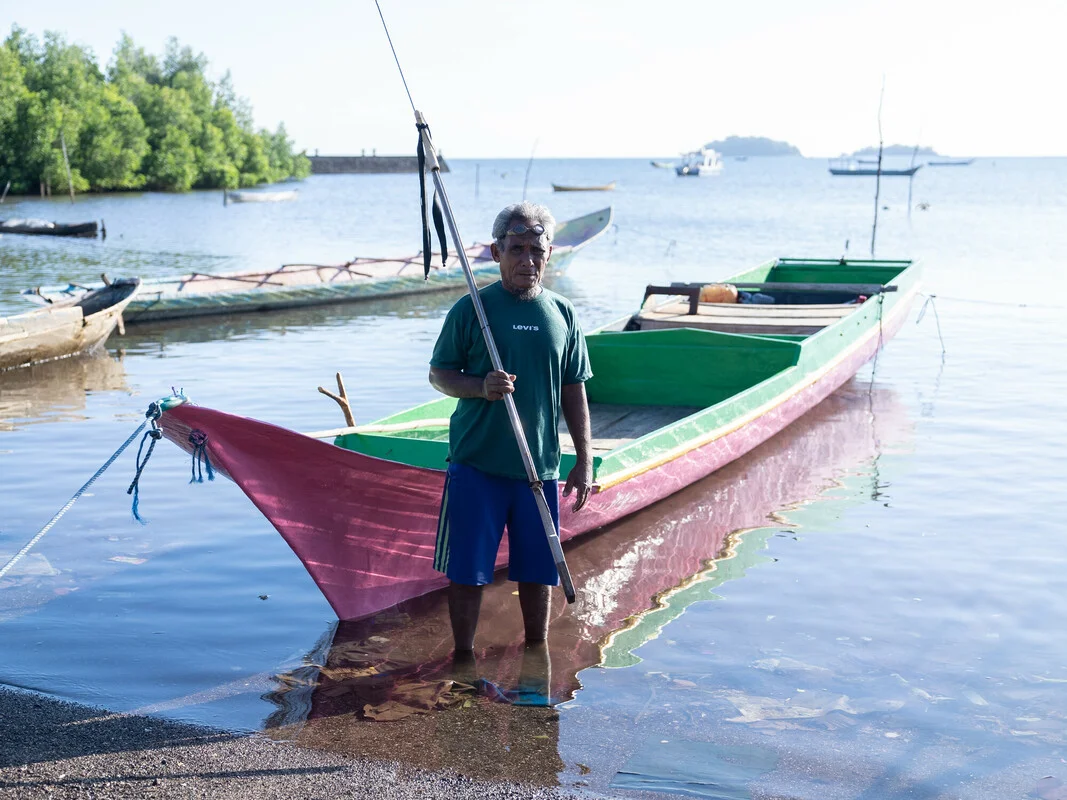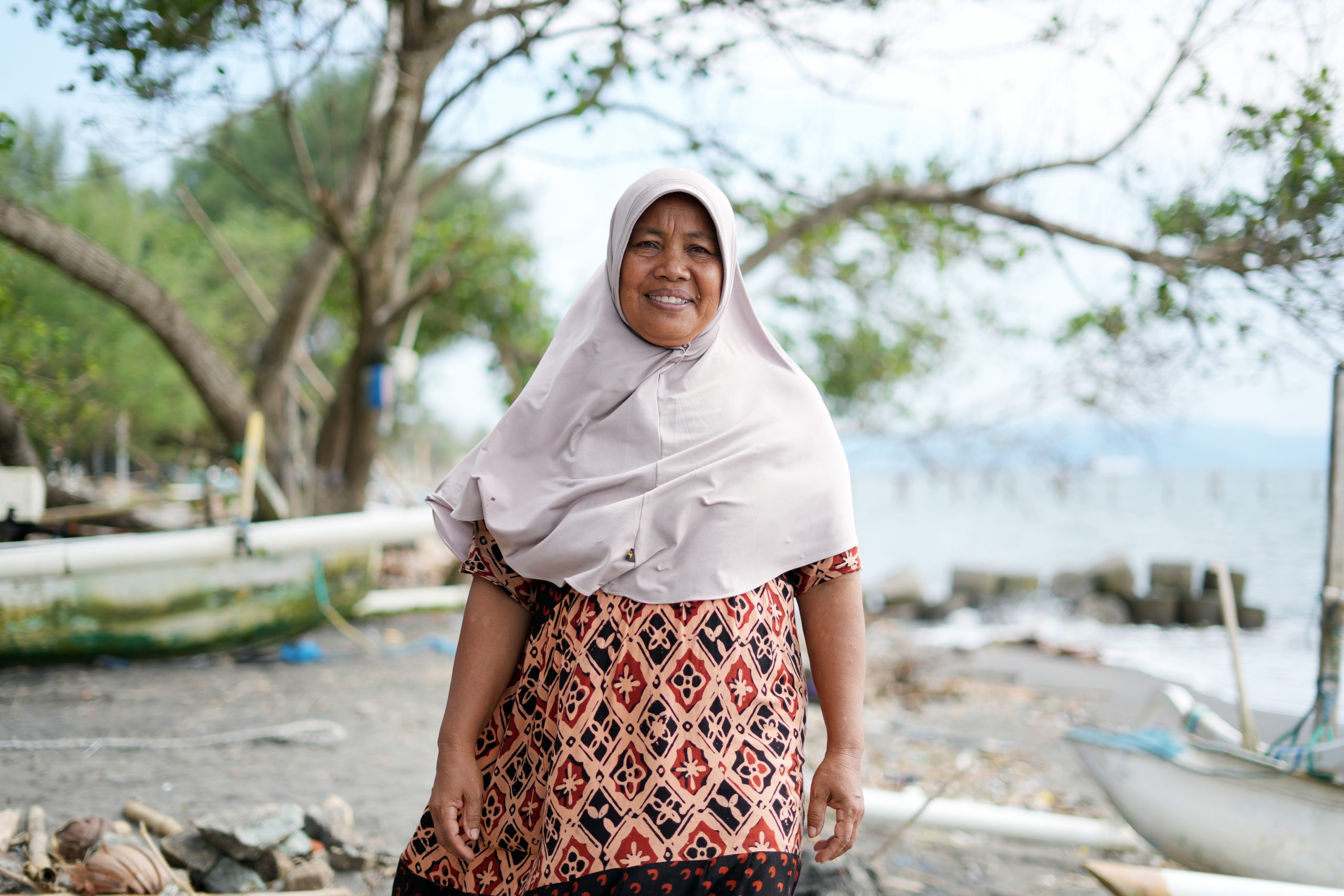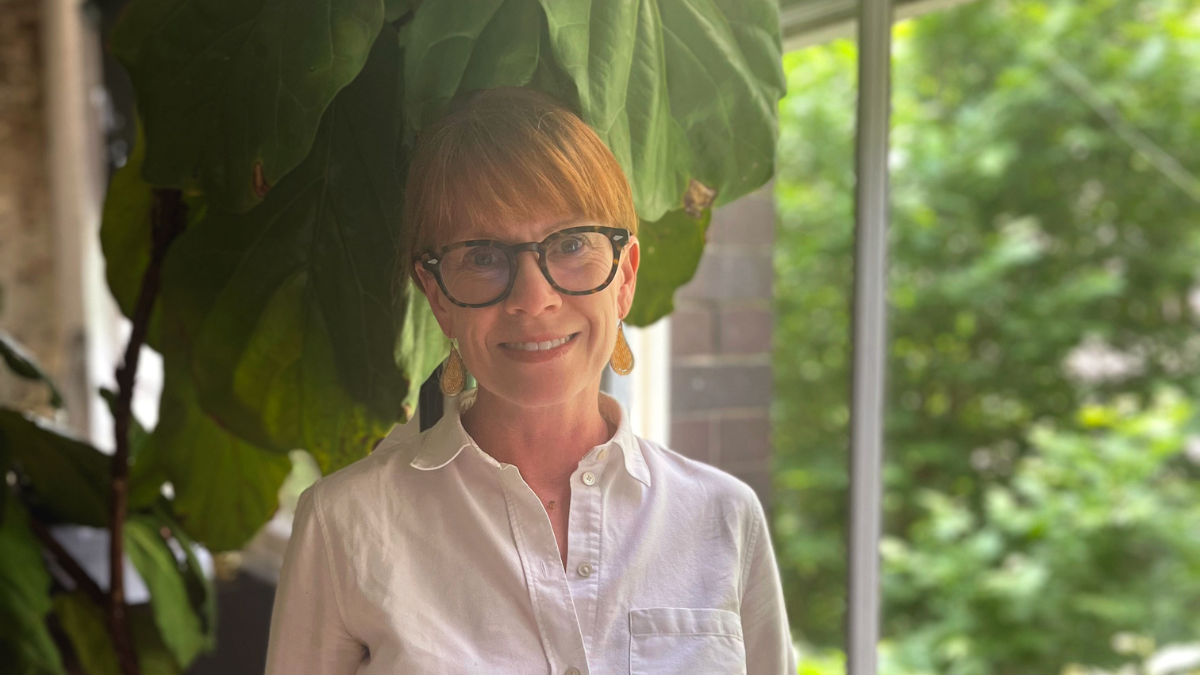English / Bahasa
Last year I had the opportunity to join in some leadership training conducted by the NGO Kapal Perempuan. I learnt many new things from the training, but as just one example, something that really impressed on me was the way that we perceive the differences between women and men. The difference between us is not just our gender or responsibilities, because these days we have the same opportunities to gain work, in fact there are even more work opportunities for women. So it’s not true to say that only men can be described as “providers”. This is an assumption that I had just accepted. In fact I even thought it was strange if men were to help out around the house.
For myself, the lessons from Kapal Perempuan have been really valuable. The training opened my eyes. As a small example, now I’ve become accustomed to the idea that it’s no longer taboo for males to work in the kitchen. I’ve encouraged my younger brother to help with the housework and I no longer think that it’s strange if males wash clothing or help to care for young children.
To read more about my work life experiences, visit my working life.
Ask Sewani…
I am happy to answer your questions about my experiences of life from the factory floor. But please remember I often work long hours and doesn’t have much free time so may take a few days to respond.
Related Indonesian entry – Bahasa Indonesia
Mengubahkan keadaan buruh perempuan
Tahun kemarin saya sempat mengikuti pendidikan yang diadakan oleh LSM Kapal Perempuan. Sebenarnya saya dapat banyak ajaran baru dari pendidikan tersebut, tapi sebagai contoh saja yang berkesan buat saya adalah soal cara kita memandang perbedaan antara laki-laki dan perempuan. Perbedaan kita bukan sekedar jenis kelamin dan tanggungjawab saja, karena saat ini kesempatan untuk mencari nafkah sama saja, malah saat ini lebih banyak kesempatan kerja untuk perempuan. Jadi tidak benar jika hanya laki-laki yang disebut sebagai pencari nafkah. Anggapan itu membuat kita selama ini menerima saja, dan malah menganggap aneh jika laki-laki membantu pekerjaan di rumah.
Bagi saya, pendidikan Kapal Perempuan itu sangat berguna. Training itu membuka mata saya. Contoh kecil, misalnya, sekarang di rumah saya membiasakan diri untuk menerapkan di rumah agar tidak tabu lagi bagi laki2 untuk bekerja di dapur. Saya mendorong adik laki2 saya untuk turut membantu di rumah. Saya juga tidak menganggap aneh lagi jika laki-laki mencuci pakaian dan ikut mengasuh anak.



